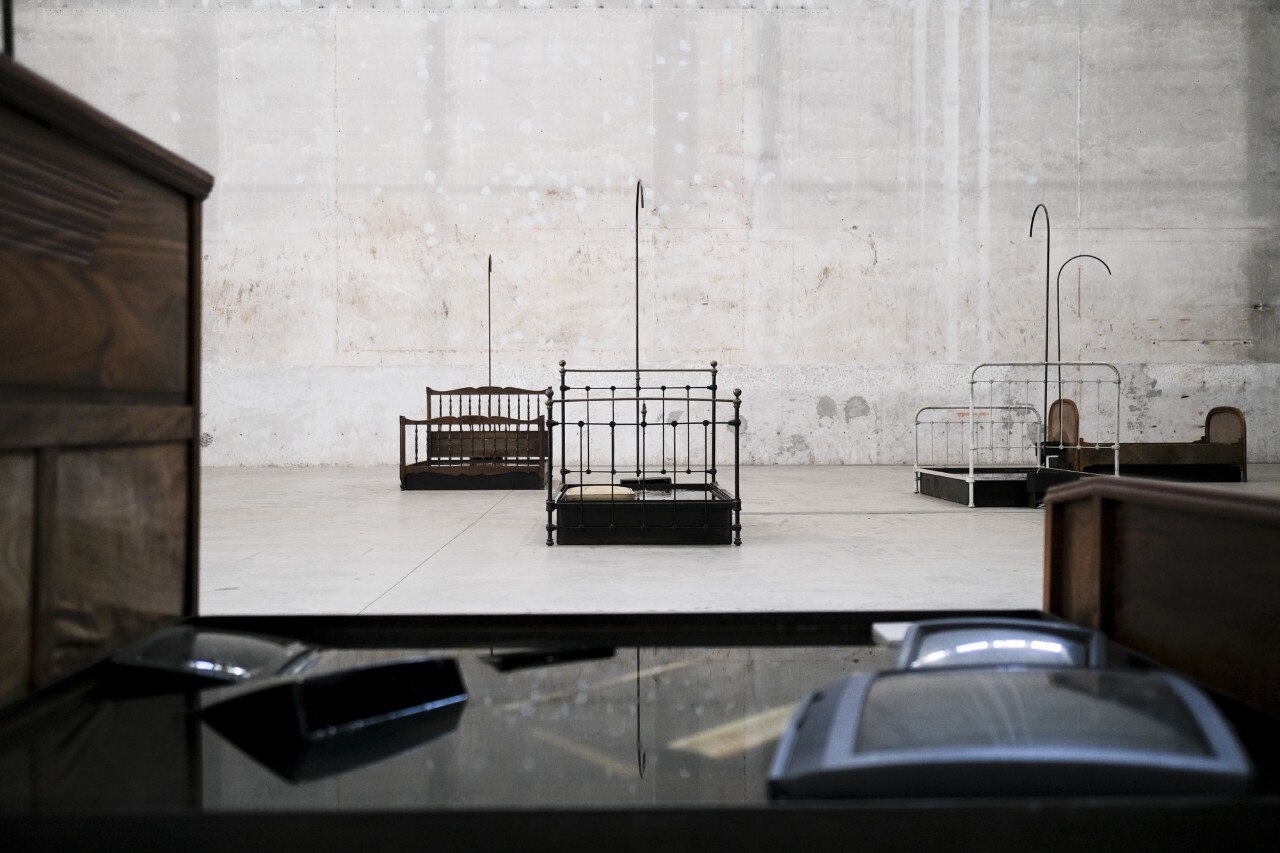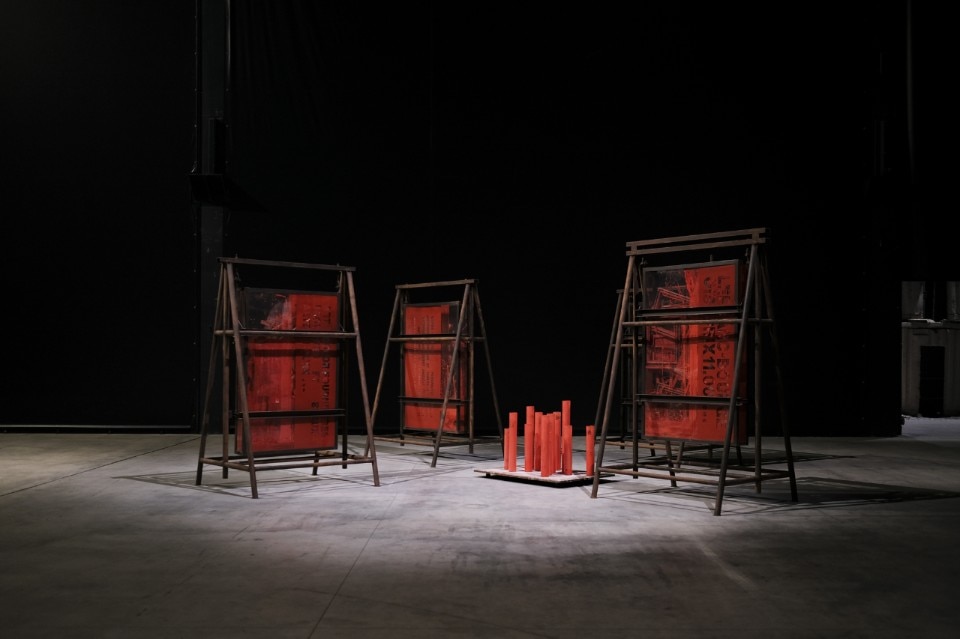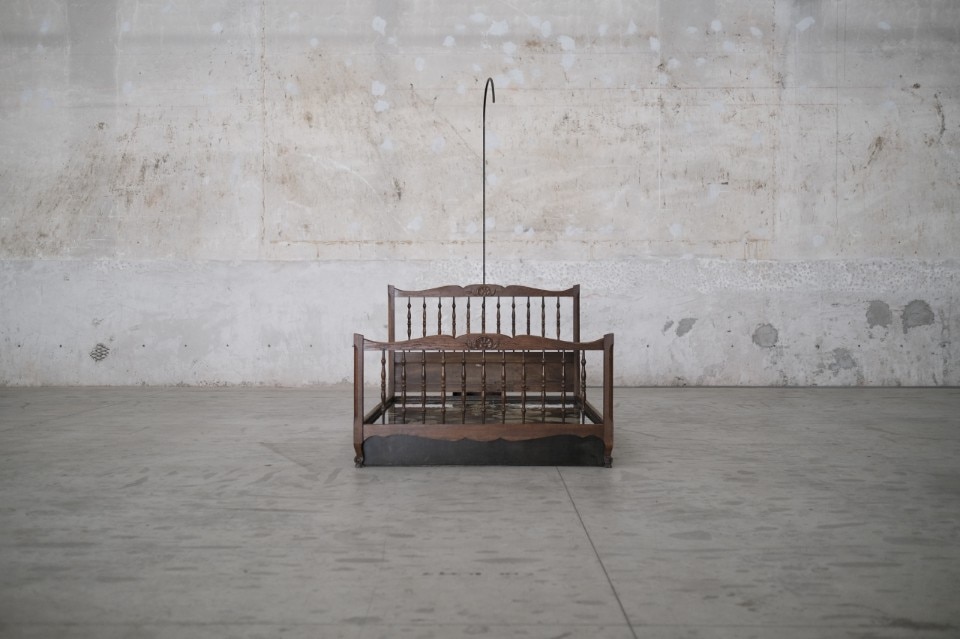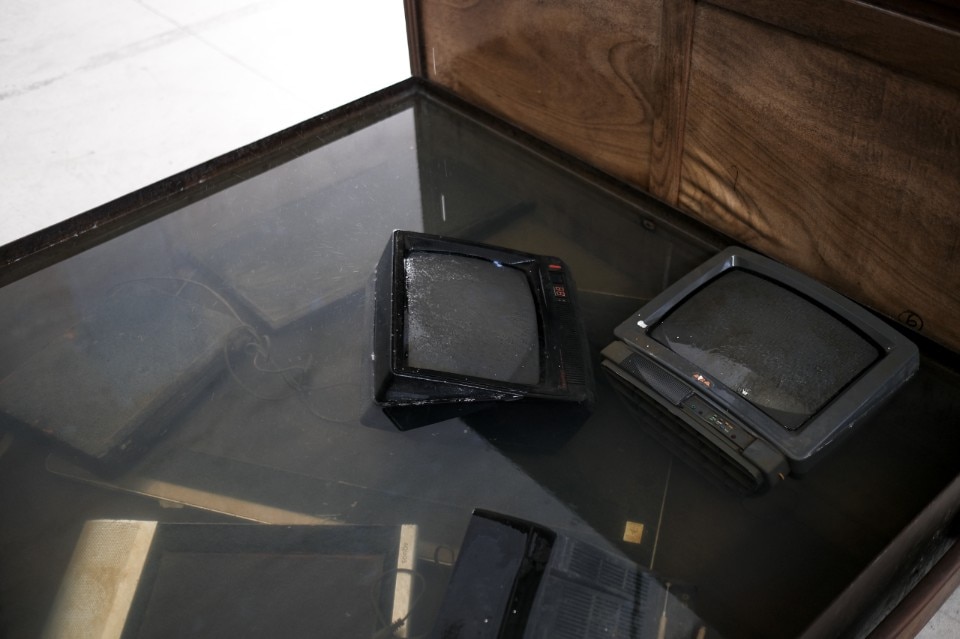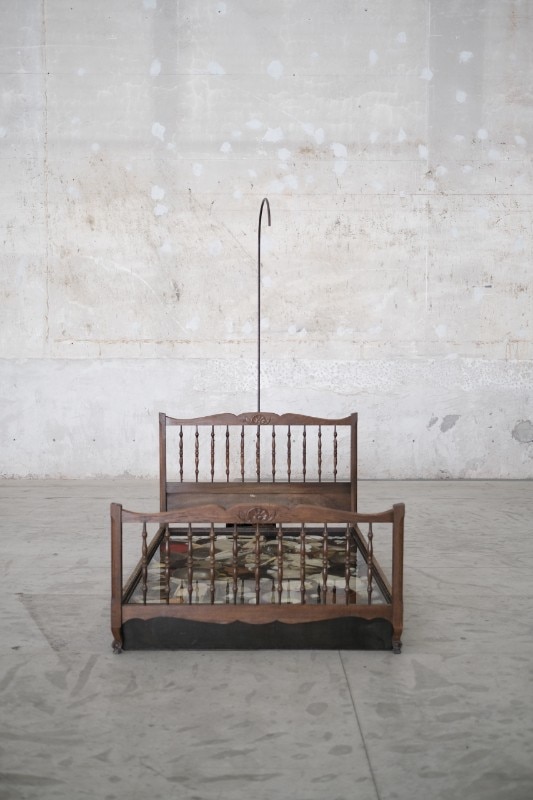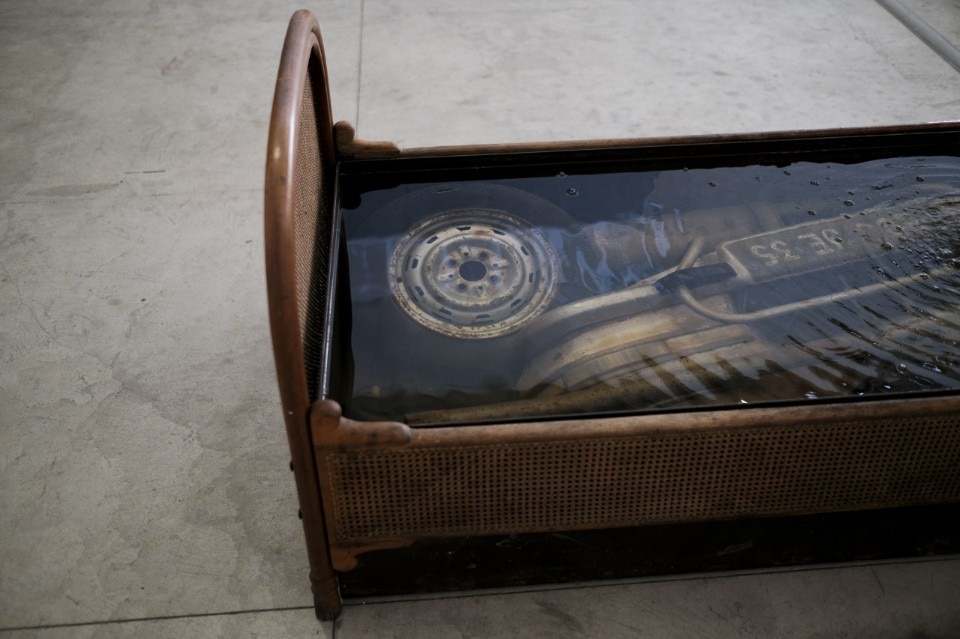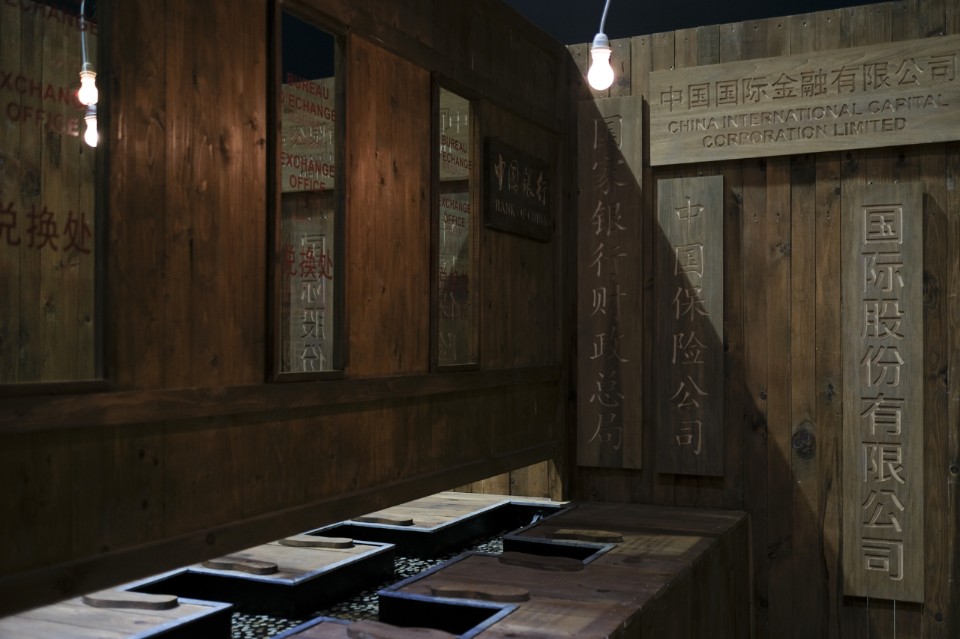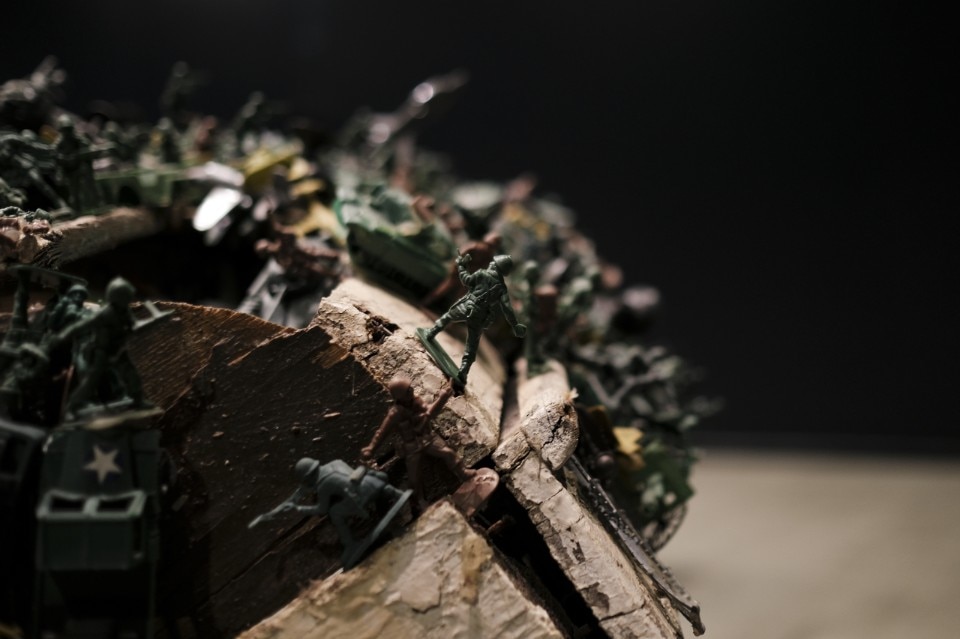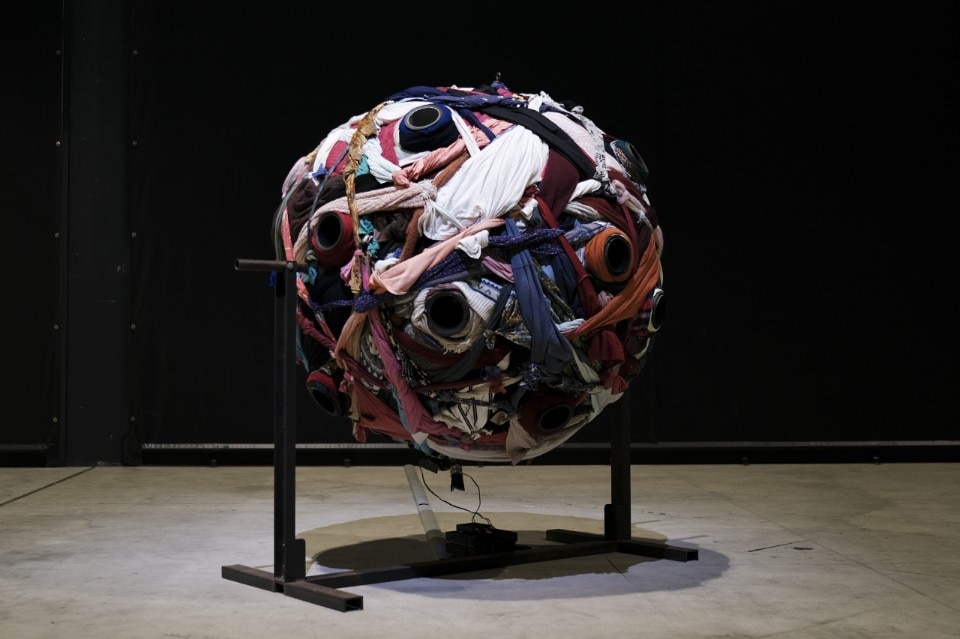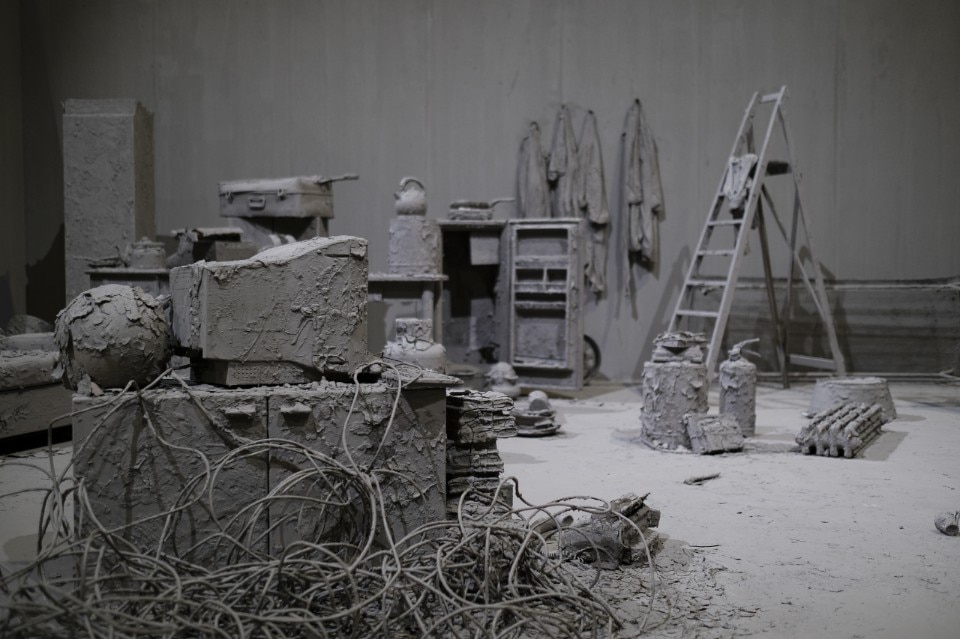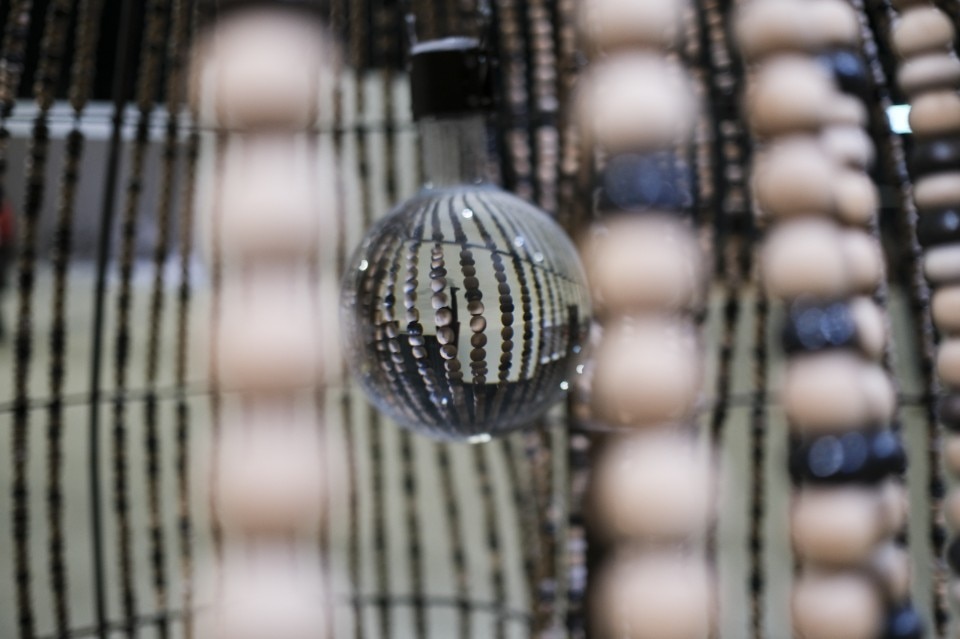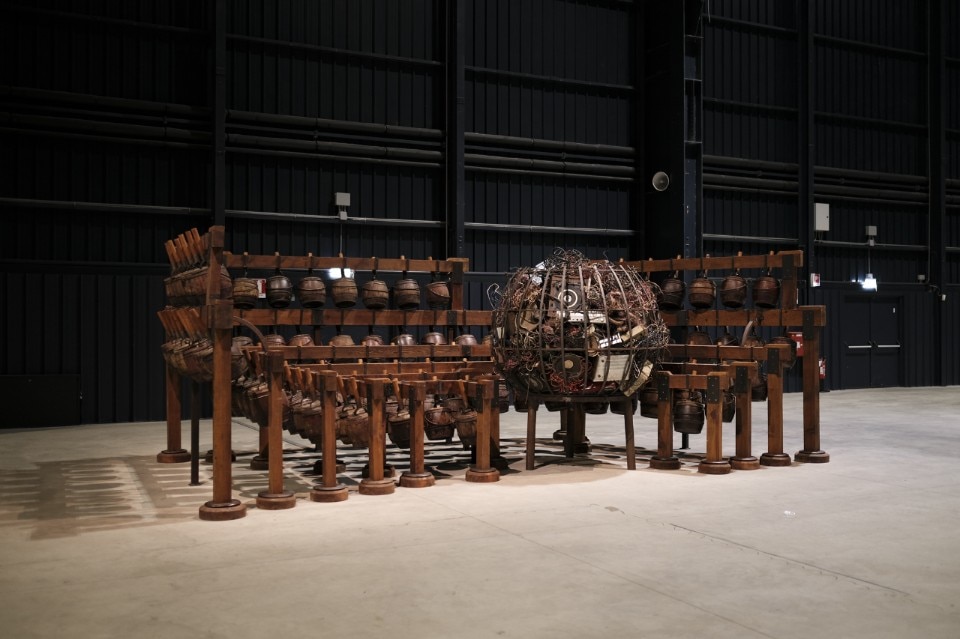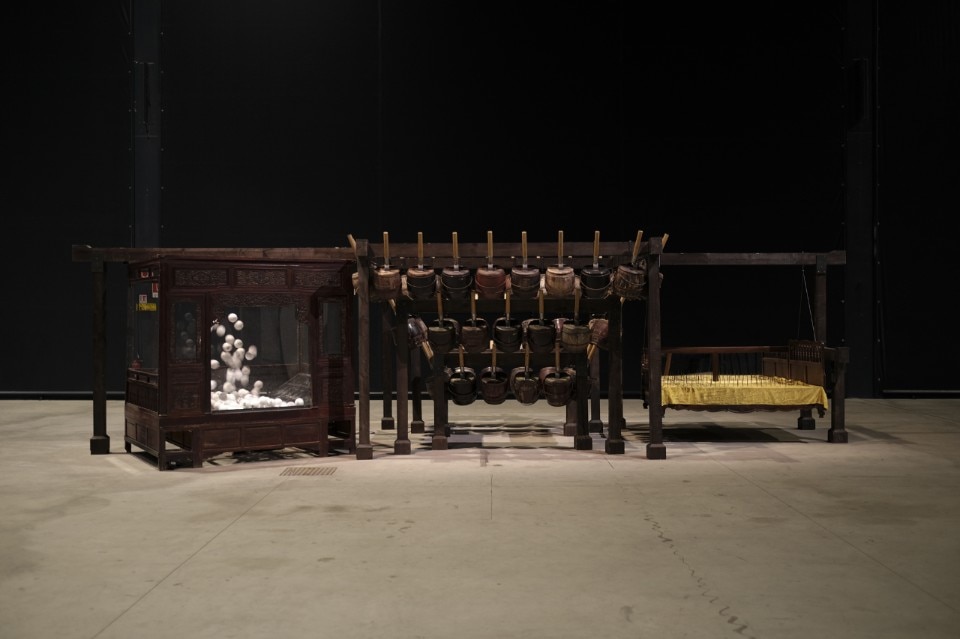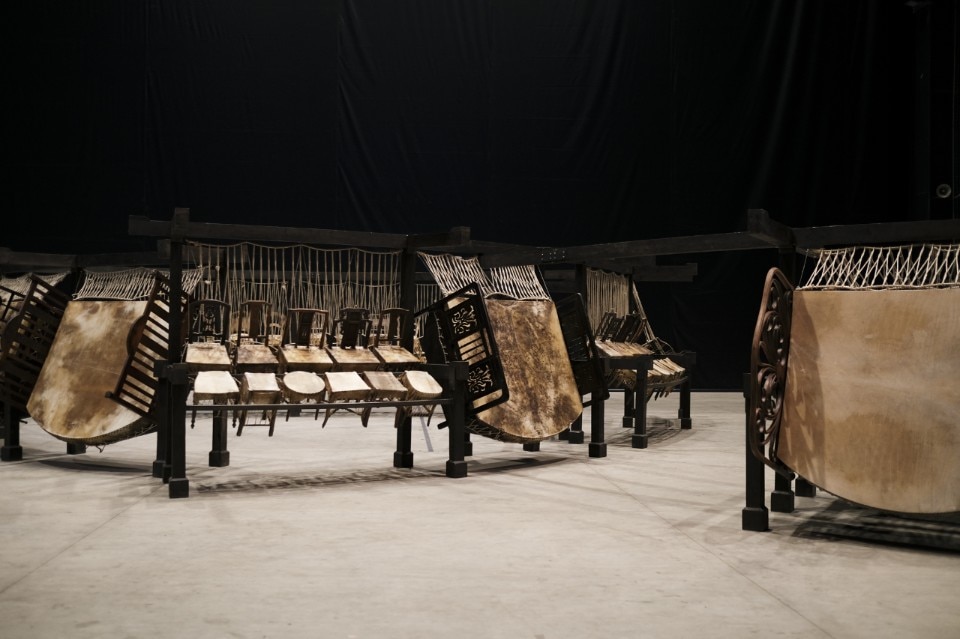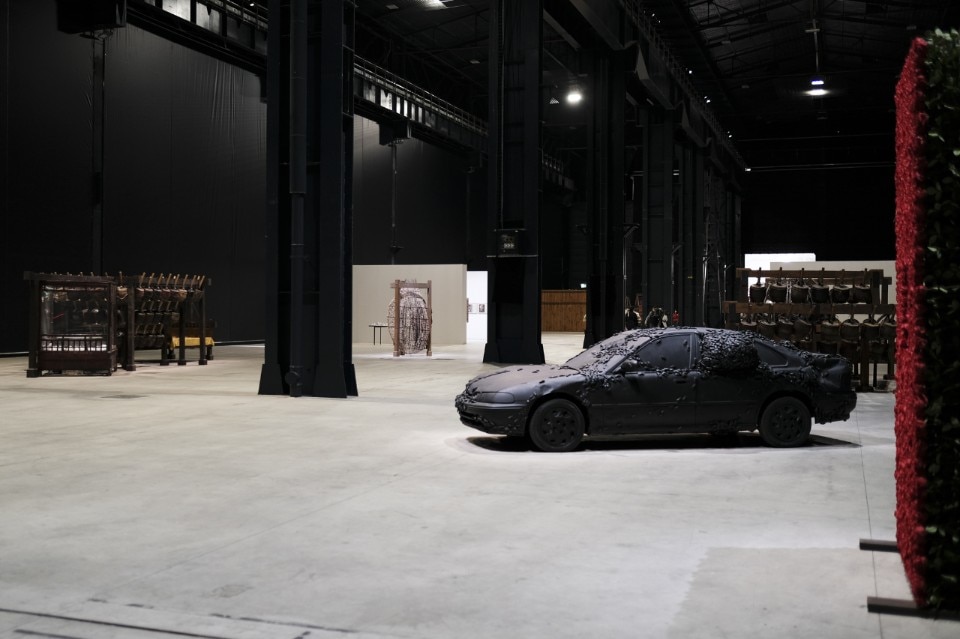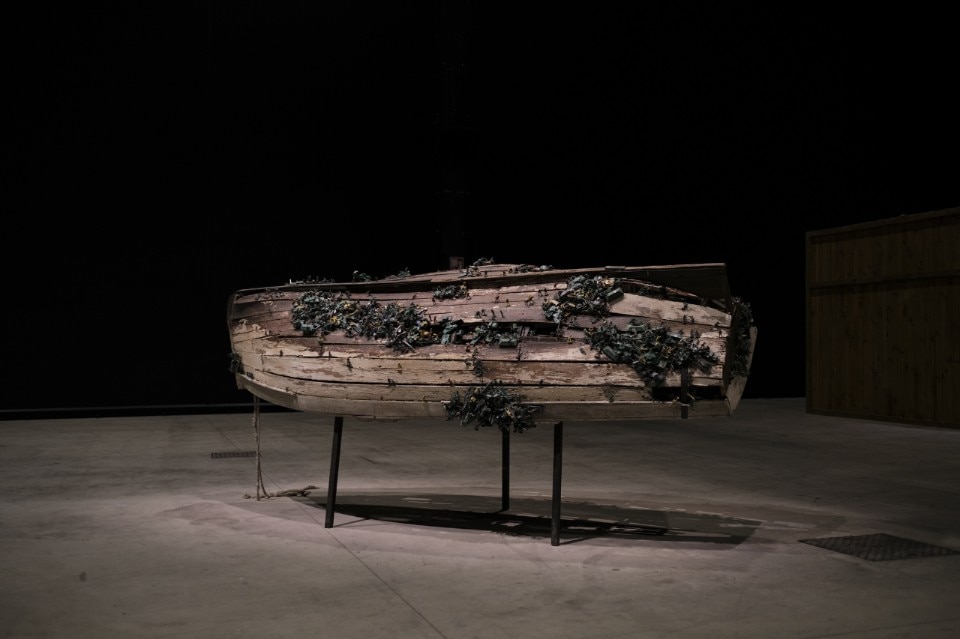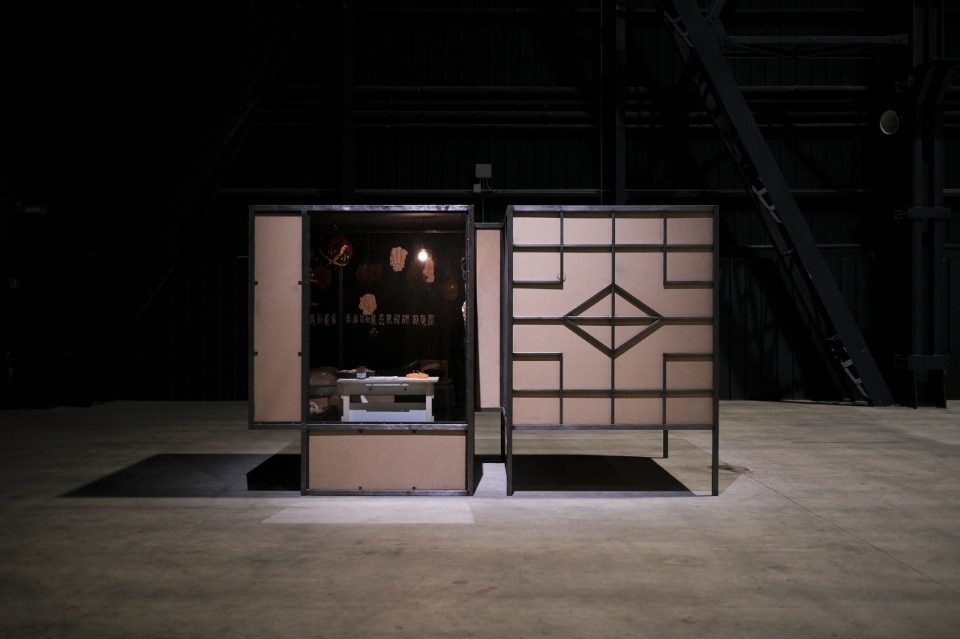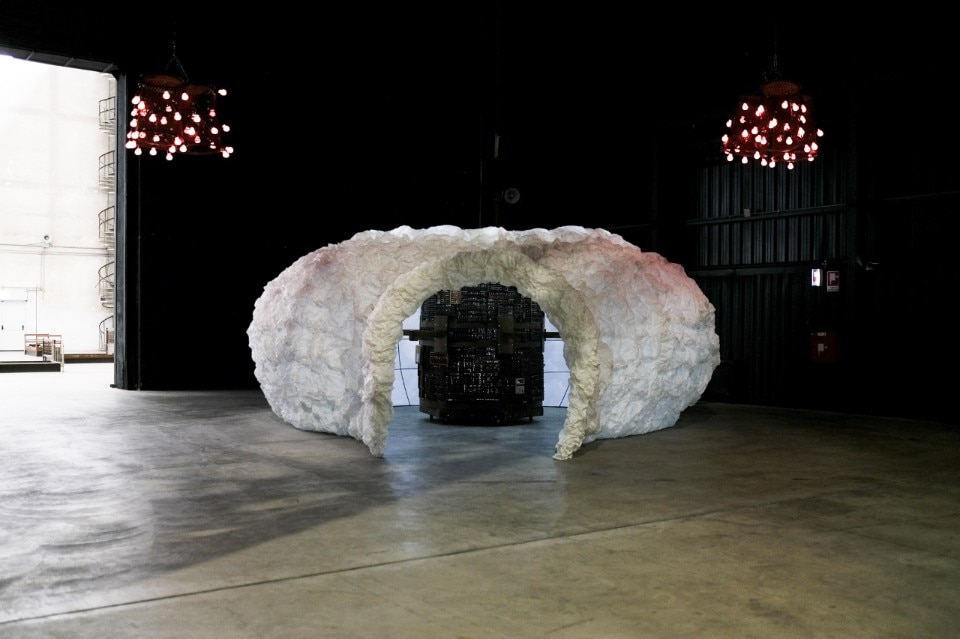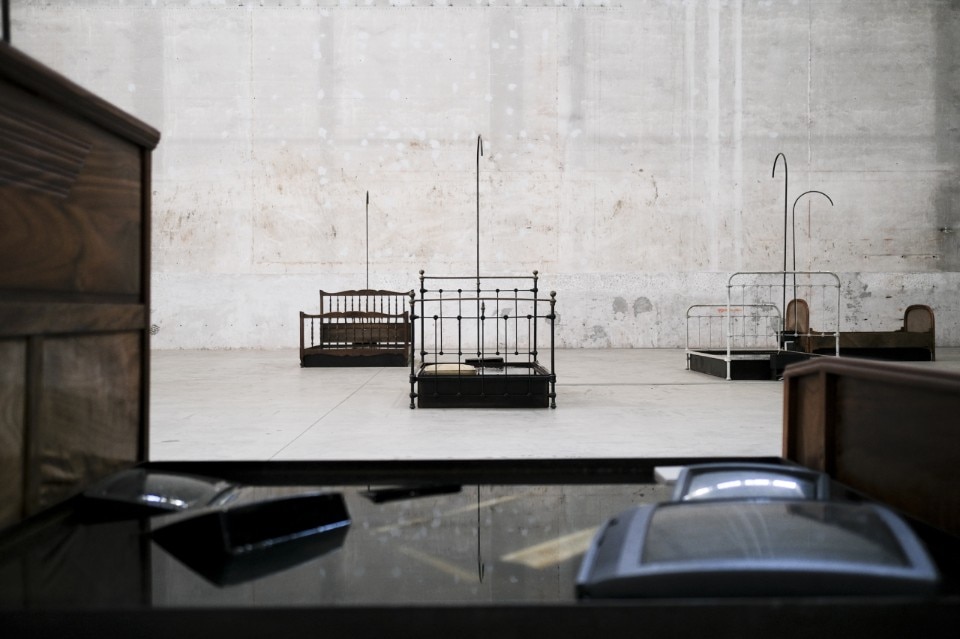Let’s start with this: let’s visit it. Short-circuits, the more than twenty installations by Chen Zhen (1955-2000) exhibited at Hangar Bicocca from 15 October to 21 February 2021 are an occasion that does not happen often, but for what? Certainly, to be seduced by one of the first artists who fused Eastern sensibility – and spirituality – with the West of enjoyable and secularized consumption, or at least, who did so and reached the mainstream audience. Sure, the mainstream of art, however a niche, but getting there, getting there more in France than in Italy and more in continental Europe than elsewhere. In France for good reasons: it was there that Chen Zhen getting older had found a second homeland, moving to Paris in 1986. He was 31 and, in a hurry, perhaps, considering that since he was 25, he knew he had a rare and serious form of anaemia. His reaction when he learned of the blood disease that would accompany him forever was to retire for three months to a monastery: after ninety days he said goodbye to monks and prayers returning to the world again. From 1989 onwards the Parisian Chen Zhen abandoned painting to move to the installations he would create until his death, in 2000, and these are precisely the ones exhibited at Hangar Bicocca.
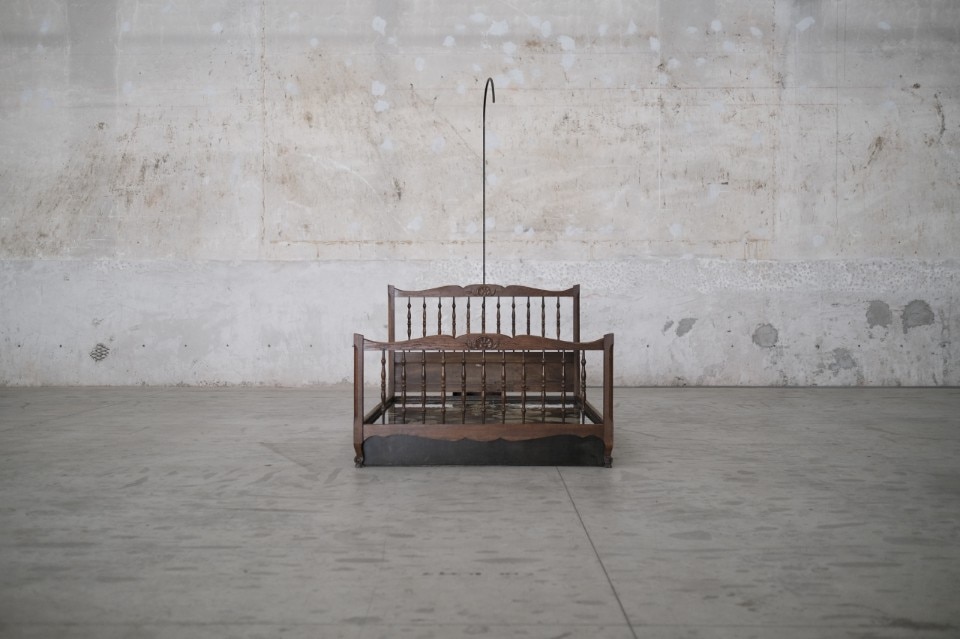
In a little more than a decade of activity Chen Zhen thus created pleasure for the eyes – and for the touch, in some cases – but above all pleasure for the thought (of course, you need to think). And just as food must be good to think about before it is eaten, so Chen Zhen worked on the themes of globalization and consumerism and on “overcoming the hegemony of Western values and the encounter of different cultures” offering cues that today seem almost naïve, but at the time were not. At the time all this was good to think about. An example? Starting from the end of the exhibition we find what is indisputably the most instagrammable work of Short-circuits, and that we will often see in the feed of the app in the coming months: in order to write an appropriate caption, remember the title, Jardin - Lavoir, dates back to 2000.
Jardin - Lavoir is a series of bed frames, emptied from the mattress, and filled with the fetishes of consumption, industrialization – and acculturation, of course – and, in turn, progress. On these scraps Chen Zhen rains a continuous dripping of water, until it completely submerges them. In this way televisions, books, computers, car rims, appliances are submerged just above the water and in some cases covered with algae. A bit didactic today? Perhaps. Although it is a twenty-year-old work. And if some of Chen Zhen’s works seem a bit didactic to us today – the submerged scraps of consumption, in which we then sleep – is not because Chen Zhen aged badly, but because we have been going too fast since 2000. But had not the time stopped? The end of history, the eternal present, and so on? Maybe it was nonsense, or as always, it depends on the context: on where more than when. In that where we are and he was, is, and will be Chen Zhen.
- Exhibition title:
- Short-circuits
- Curated by:
- Vicente Todolí
- Opening dates:
- 15 October 2020 – 21 February 2021
- Venue:
- Pirelli HangarBicocca, Via Chiese 2, 20126, Milan, Italy
All pictures by Gabriele Ferraresi.


